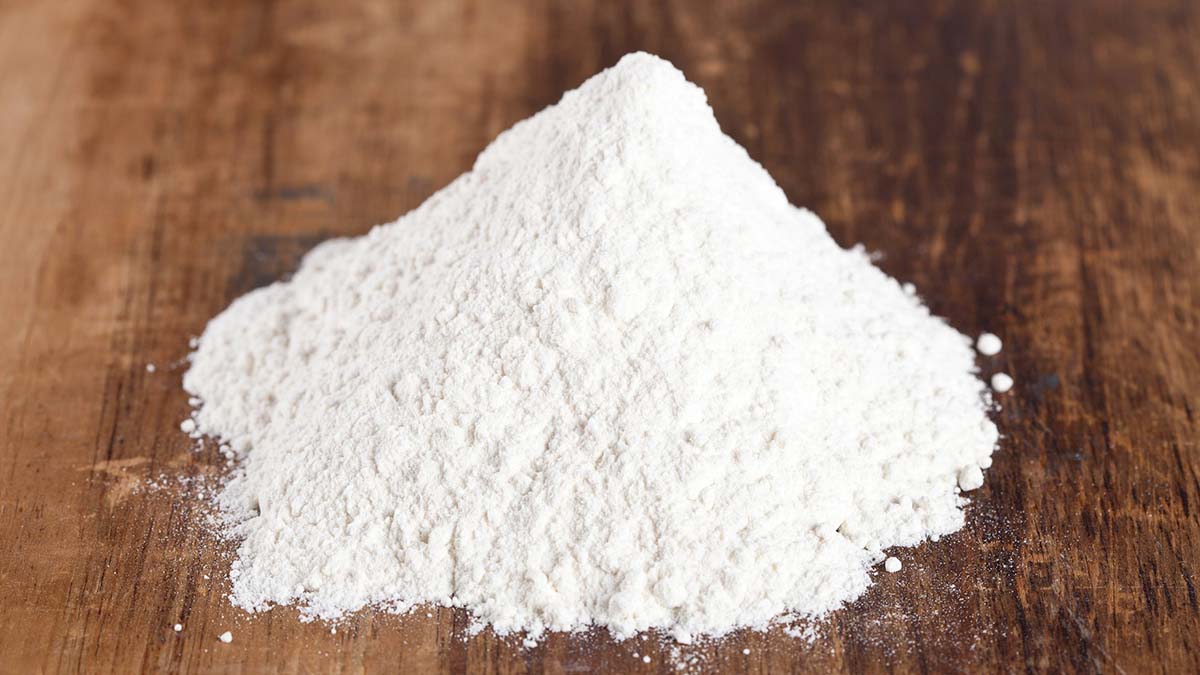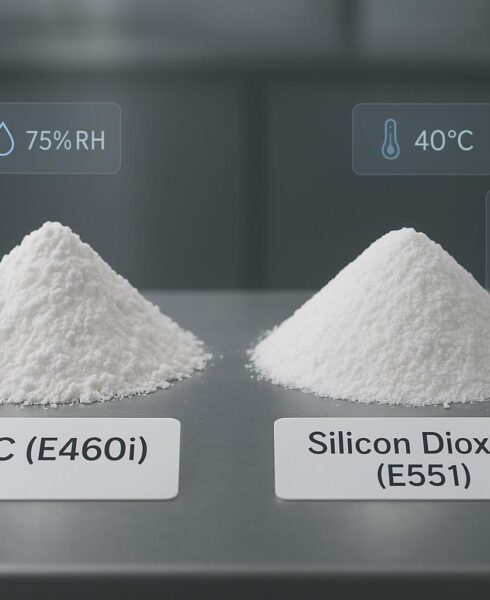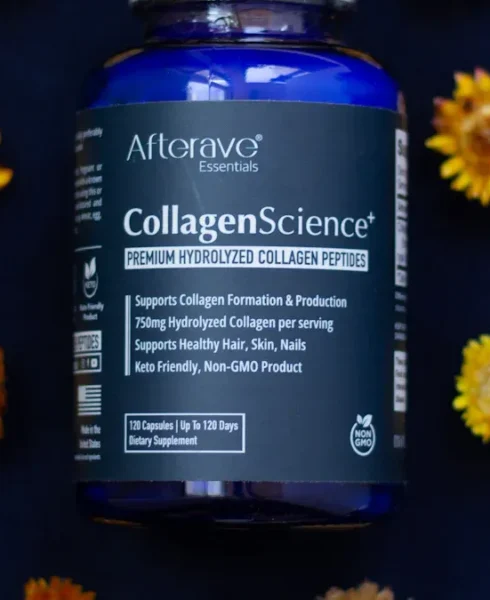Magnesium Stearate is often picked first for making tablets and capsules. This excipient helps press medicine into solid shapes. It also helps powders move easily during making. Many companies use it because it saves money. It also works in many kinds of formulas. Calcium stearate is another choice if you want something different. When you pick, think about how each excipient mixes with other ingredients. Also think about how it breaks down in tablets. You should also think about how your body takes in nutrients.
Key Takeaways
Magnesium Stearate gives strong lubrication. This makes it good for quick tablet making. It helps powders move easily. It also stops machines from sticking.
Calcium Stearate is safer for sensitive people. It is best for those who must avoid magnesium. It helps the body take in nutrients better. It is less likely to upset your stomach.
Cost matters a lot. Magnesium Stearate usually costs less. Calcium Stearate can cost more. But it has special benefits for sensitive formulas.
You should test your formula with both excipients. See how they change tablet dissolving and stability. This helps your product stay high quality.
Remember the rules for safety. Both excipients must follow safety standards. Keep good records of your choices and test results.
Quick Comparison

Key Attributes
You might wonder how Magnesium Stearate and calcium stearate are different. Both help make tablets and capsules. They stop powders from sticking to machines. They also help powders move better. Their chemical makeup is not the same. They work a little differently in formulas.
Attribute | Magnesium Stearate | Calcium Stearate |
|---|---|---|
Source | Magnesium + Stearic Acid | Calcium + Stearic Acid |
Appearance | White, fine powder | White, fine powder |
Solubility | Poor in water | Poor in water |
Lubrication Strength | High | Moderate |
Cost | Lower | Slightly higher |
Allergen Risk | Very low | Very low |
Common Use | Tablets, capsules | Tablets, capsules |
Tip: Check the lubrication strength before you pick an excipient. Strong lubrication helps you make tablets faster. It also helps you avoid problems.
Pros and Cons
It is smart to look at the good and bad sides of each excipient. This helps you choose the best one for your formula.
Magnesium Stearate
👍 Pros:
Gives strong lubrication
Works with many ingredients
Saves money for most formulas
👎 Cons:
May slow how tablets break apart
Some studies say it can lower nutrient absorption
Calcium Stearate
👍 Pros:
Good if you worry about nutrient absorption
Less likely to change how tablets break apart
👎 Cons:
Costs a bit more
Lubrication is not as strong as Magnesium Stearate
Think about these points before you choose. Your choice depends on your formula, your budget, and your safety needs.
Decision Factors
Lubrication
You want your tablets to be smooth and easy to make. Lubrication helps powders move through machines without sticking. Magnesium Stearate gives strong lubrication. It helps you make tablets faster and with fewer problems. Calcium stearate also helps, but it does not work as well. Tablets may need more force to leave the press when you use calcium stearate. This can slow down your process.
Tip: If you need to make tablets quickly, pick an excipient with strong lubrication. Magnesium Stearate is often the best choice for this.
Compatibility
You should check how each excipient mixes with your other ingredients. Magnesium Stearate works with many kinds of powders. It helps powders flow better and keeps your formula stable. Calcium stearate can also mix well, but you may see changes in how your tablets break apart. Some formulas need a gentle touch. If you use sensitive ingredients, test both excipients before you decide.
Excipient | Flow Agent Role | Tablet Strength | Dissolution Profile |
|---|---|---|---|
Magnesium Stearate | Excellent | Strong | May slow |
Calcium Stearate | Good | Strong | Less impact |
Safety
You want your product to be safe for everyone. Magnesium Stearate does not hurt genes. Still, you should watch out for magnesium intake. Some people, like babies or those with kidney problems, may react to too much magnesium. They can get stomach problems, such as diarrhea. If your formula uses other magnesium salts, you need to check the total amount. Calcium stearate does not have these issues. It is a good choice if you worry about nutrient absorption or sensitive users.
Note: Always check what your users need. If you make products for kids or people with health problems, safety matters even more.
Regulatory
You must follow rules when you pick an excipient. Both Magnesium Stearate and calcium stearate need to meet official standards. You must show why you chose your excipient. Regulators want to see clear documents about what you use and where it comes from. You need to explain the job of each excipient in your formula. If you do not meet these rules, you may face delays or extra questions.
Make sure your excipient meets official standards.
Prepare documents that show your excipient’s source and purpose.
Check if your excipient fits the rules for your market.
Tip: Good records help you avoid problems with regulators. Always keep your paperwork up to date.
Magnesium Stearate

Advantages
Magnesium Stearate is used in lots of tablets and capsules. This excipient helps tablets not stick to machines. It lets powders get pressed into solid shapes easily. Magnesium Stearate gives strong lubrication, so powders move smoothly. You save time and money because machines work faster. Machines also need less cleaning.
Many companies pick Magnesium Stearate because it works with many ingredients. You can use it in vitamins, pain relievers, and supplements. It keeps tablets strong and helps them keep their shape. You do not need to worry about allergies. Magnesium Stearate almost never causes problems. You also get a fine, white powder that mixes well with other ingredients.
Tip: If you want a good excipient for quick tablet making, Magnesium Stearate is a smart pick.
Here are the main advantages:
Strong lubrication for easy tablet making
Works with many kinds of powders
Saves money when making tablets
Hardly ever causes allergic reactions
Helps tablets stay in shape
Disadvantages
You should know about some limits when using Magnesium Stearate. Sometimes, it makes tablets break apart more slowly. This means your medicine may take longer to work. You may need to test your formula to make sure it dissolves fast enough.
Some people worry Magnesium Stearate lowers nutrient absorption. Studies show this is not true. Magnesium Stearate does not coat your intestines or block nutrients. Some claims say it lowers immunity, but these come from lab tests. They do not match how your body works.
Here are some common disadvantages:
Tablets may dissolve slower than you want
Some formulas need extra tests for breakdown speed
Myths about nutrient absorption and immunity can confuse people
Note: Most worries about Magnesium Stearate are misunderstandings. You can use it safely in most formulas.
Calcium Stearate
Advantages
You might pick calcium stearate for your tablets or capsules. This excipient gives some special benefits that help your product stay safe and good.
You get a very clean excipient. Calcium stearate does not bring in dirty stuff, so your medicine stays pure.
You do not have to worry about heavy metals. Calcium stearate has no heavy metals, so your product is safer for everyone.
You help your medicine keep working well. Calcium stearate helps your body take in the medicine at a steady rate, which matters for calcium-based products.
You make your tablets last longer. Calcium stearate helps your medicine stay strong and not break down too fast.
You can expect the active ingredient to come out as planned. Calcium stearate helps your medicine release slowly and evenly.
Tip: If you make supplements or medicines for people who should not have magnesium, calcium stearate is a good choice. It works well when you want to keep nutrient absorption safe.
You also get a powder that mixes well with other ingredients. Calcium stearate does not usually cause allergies. You can use it in many kinds of tablets and capsules. Many companies choose it for sensitive formulas or when they want to skip magnesium.
Disadvantages
You should know about the limits of calcium stearate. This excipient does not give as much lubrication as magnesium stearate. You may need to press harder to make your tablets. This can slow down how fast you make them.
Calcium stearate often costs a little more. If you need to save money, you might notice this. Some formulas may not work as well with calcium stearate, especially if you want to make tablets very fast.
Note: Always test your formula before you change excipients. Calcium stearate can change how your tablets break apart or how fast they dissolve. You want to make sure your medicine still works right.
You may need to change your process. Calcium stearate can affect how powders move in your machines. You should check if your equipment needs changes. This helps you avoid problems when you make your tablets.
Choosing an Excipient
Selection Guide
You want to choose the best excipient for your tablets or capsules. First, look at your formula and what you want to do. Follow these steps to help you pick:
Know Your Formula Needs
Start by checking your active ingredients. Some need strong lubrication. Others need to break down fast in the stomach. Write down what your formula should do.Check Ingredient Compatibility
Test how magnesium stearate and calcium stearate mix with your powders. You want powders to flow well and not clump. If you see problems, try the other excipient.Think About Nutrient Absorption
If you make vitamins or supplements, see if your excipient changes how the body takes in nutrients. Magnesium stearate may slow absorption for some formulas. Calcium stearate is safer for sensitive users.Review Safety for Your Users
Think about who will use your product. If you make medicine for kids or people with health problems, pick the safest excipient. Calcium stearate is good for people who need to avoid extra magnesium.Test Dissolution Profile
Make a sample tablet. Test how fast it breaks apart in water. If your tablet dissolves too slowly, change the excipient or the amount you use.Check Moisture Sensitivity
Some formulas react to water. Magnesium stearate and calcium stearate both resist water, but you should test your formula to be sure.Review Cost and Supply
Magnesium stearate usually costs less. If you need to save money, this excipient helps. Calcium stearate costs more but may fit special needs.Follow Regulatory Rules
Make sure your excipient meets all official standards. Keep records of your tests and choices. Regulators want to see clear proof.
Tip: Always run small tests before you make a big batch. You can find problems early and save time.
Checklist
You can use this checklist to help you pick the right excipient for your product:
Step | Magnesium Stearate | Calcium Stearate | Notes |
|---|---|---|---|
Strong Lubrication Needed | ✅ | ⬜ | Magnesium stearate works best for fast tablet making. |
Sensitive Users | ⬜ | ✅ | Calcium stearate is safer for kids and people with health issues. |
Fast Dissolution Required | ⬜ | ✅ | Calcium stearate helps tablets break apart quickly. |
Cost Savings | ✅ | ⬜ | Magnesium stearate saves money. |
Nutrient Absorption Concern | ⬜ | ✅ | Calcium stearate does not slow nutrient absorption. |
Moisture Sensitivity | ✅ | ✅ | Both excipients resist water. |
Regulatory Compliance | ✅ | ✅ | Both meet official standards. |
Note: If you check more boxes for one excipient, that is your best choice. Always test your formula before you decide.
Use this guide and checklist every time you make a new product. You will find the excipient that fits your needs and keeps your users safe.
Common Scenarios
When to Use Magnesium Stearate
You pick Magnesium Stearate when you want to make tablets fast. This excipient helps powders move in machines without sticking. You get strong lubrication, so tablets come out smooth. Tablets do not break apart while pressing. Magnesium Stearate mixes well with many ingredients. It keeps your formula stable.
You save money because this excipient costs less than others. You use it for vitamins, pain relievers, and supplements. If you need to make lots of tablets, Magnesium Stearate helps you finish quickly. You also avoid allergy problems because it rarely causes reactions.
Use Magnesium Stearate if:
You need strong lubrication for quick tablet making.
You want to save money when making tablets.
You work with many kinds of powders.
You do not worry about nutrient absorption.
Tip: Always test how fast your tablets break down. Magnesium Stearate can slow how quickly tablets dissolve.
When to Use Calcium Stearate
You pick calcium stearate when you want to protect nutrient absorption. This excipient works well for sensitive formulas. It is good for children or people with health problems. You use calcium stearate if you want tablets to break apart quickly in the stomach. You also choose it when you want to avoid extra magnesium.
Calcium stearate helps keep tablets pure and free from heavy metals. You use it for supplements that need gentle care. If you make products for people who should not have magnesium, calcium stearate is a safe choice.
Use calcium stearate if:
You want to protect nutrient absorption.
You make products for sensitive users.
You need tablets to dissolve fast.
You want to avoid magnesium in your formula.
Note: Calcium stearate costs more and may slow down tablet making. Always check your machines before you switch.
You have learned how to pick between magnesium stearate and calcium stearate. Magnesium stearate is good if you want to make tablets quickly and save money. Calcium stearate is better for gentle formulas and helps keep nutrients safe. Use the checklist to help you choose. Always test your formula before you pick.
Remember: Each product is special. Ask an expert or look up more information if you are not sure.
Think about what you need
Look at both excipients
Choose what is safest
FAQ
What does magnesium stearate do in tablets?
Magnesium stearate helps powders move easily in machines. Tablets do not stick to the equipment. It lets you make tablets faster.
Tip: Magnesium stearate works for many medicines and supplements.
Is calcium stearate safer for sensitive users?
Yes, calcium stearate is good for people who should not have extra magnesium. You can use it for kids or people with health problems.
Excipient | Good for Sensitive Users |
|---|---|
Magnesium Stearate | ⬜ |
Calcium Stearate | ✅ |
Can magnesium stearate slow nutrient absorption?
Some people worry about this problem. Most studies say magnesium stearate does not block nutrients. You can test your tablets to make sure they work right.
Note: Always check how your tablets break apart and release nutrients.
Which excipient costs less?
Magnesium stearate costs less than calcium stearate. You save money when you use it for big batches.
Magnesium stearate: Lower cost
Calcium stearate: Higher cost
Do both excipients meet safety standards?
Yes, both magnesium stearate and calcium stearate follow safety rules. You need to keep records and test your products to follow the rules.
Remember: Always check the newest regulations for your market.







